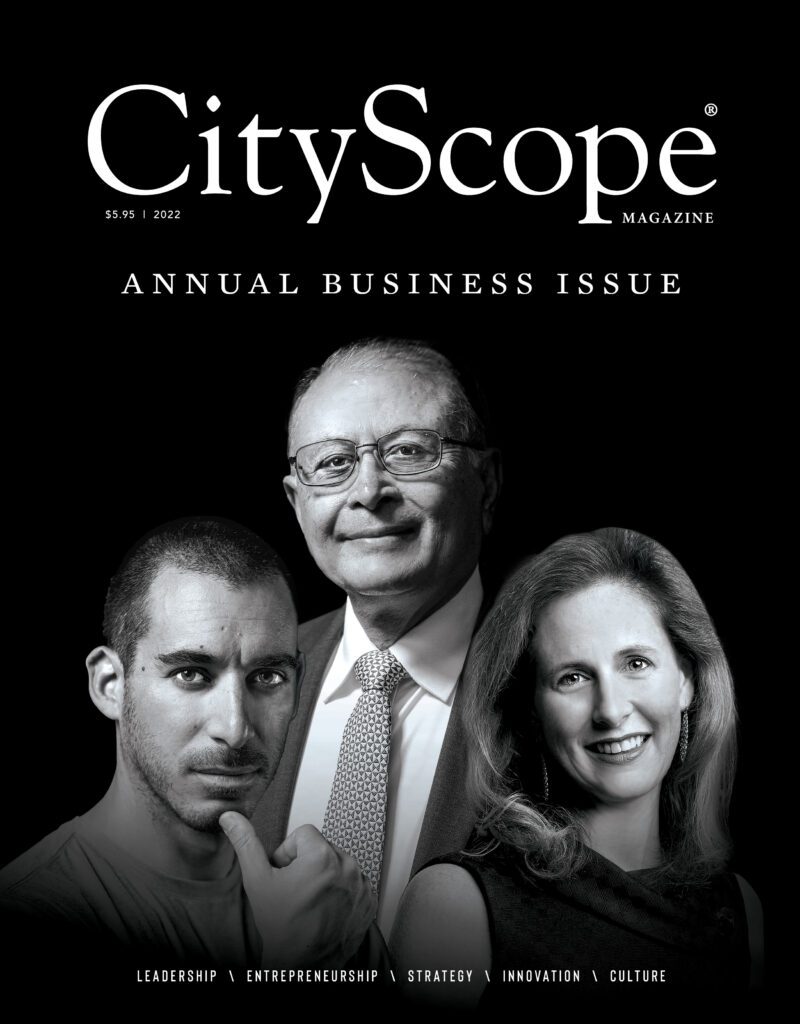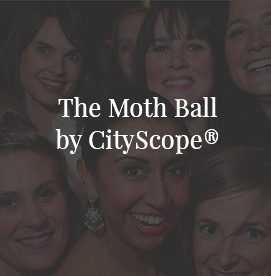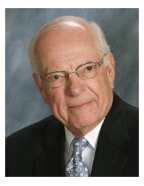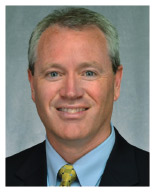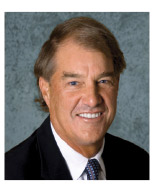By Shelley Prevost
So what is company culture?
Company culture is the energy of the environment or the ethos of a workplace. It’s less about what work is done and more about how it gets done. It’s expressed in the shared values of employees and embodied by the people who work there. George Bradt, contributing writer at Forbes, says that every culture contains the same five raw ingredients: behaviors, relationships, attitudes, values and environment. The proportion and combination of each ingredient will yield your unique company culture. Primarily created by the behaviors, attitudes, and values of its leaders, a company culture has the DNA of its leadership all over it. Because of its unique composition, your company culture is inimitable by others. In fact, it can be a competitive advantage because no other company can reproduce your exact combination of behaviors, values, and attitudes.
Every company has a culture. But let’s be honest—some workplace cultures are just better than others. Great ones are made up of strong leaders, a compelling vision, and inspired, hard-working teams.
When asked about successful and innovative company cultures, most of us think about workplaces like the Googleplex, Google’s corporate campus just outside of San Jose. With its famed free gourmet food, onsite laundry services, climbing walls and yoga classes, Google’s emphasis on company culture extends far beyond the perks it’s known for.
Google prides itself on banning bureaucracy. In fact, one of its core values is “You can be serious without a suit.” Instead, it opts for an open, accessible and free-spirited work environment. Google sets the standard for hiring smart and creative people, then encouraging autonomy over every product and its direction. They believe that this unfettered type of culture generates more ideas, leading to real innovation with broader impact.
Besides Google, no other company has shed light on the importance of company culture quite like Zappos—the famous online shoe and apparel shop with headquarters just outside of Las Vegas. With its business model built on happiness, the company appeals to both customers and employees alike. Because who doesn’t want to be happier?
Zappos CEO Tony Hsieh figured out that by emphasizing his employees’ happiness, they would in turn become loyal brand ambassadors to every customer they touched. And that logic has proven true. Zappos began as an upstart in 1999 and was sold to Amazon in 2009 for $1.2 billion. Hsieh credits this success to their unique company culture, even saying, “If we get the culture right, then everything else, including the customer service, will fall into place.”
Committed to their mission to support “Whole People, Whole Foods, and a Whole Planet,” Whole Foods also places a high value on company culture. Most notably, it caps executive salaries (CEO John Mackay insists on a $1 annual salary and is a key leader of the Conscious Capitalism movement), and is known for its democratic hiring process that allows employees a say in who they work with. It also offers above-average salaries and benefits (average annual pay for hourly workers is $25, 451, and average annual pay for salaried workers is $73, 061).
At Southwest Airlines, employees are encouraged to “Live the Southwest Way,” and are expected to live with a “Warrior Spirit, a Servant’s Heart, and Fun-LUVing Attitude.” And when appropriate, “coloring outside the lines” is encouraged to make a customer happy. This mandate was epitomized when a flight attendant recited a calming bedtime story over the plane’s PA system during some unruly turbulence.
Emphasizing that work can and should be fun, CEO Gary Kelly says Southwest’s quirky culture has positioned it to be the only consistently profitable company in the domestic airline industry.
Chattanooga DNA
While the importance of company culture is sweeping like wildfire and iconic national brands are taking stock, we are fortunate that other standout companies in Chattanooga are equally committed to their employees and the culture in which they work.
BlueCross BlueShield of Tennessee
As I drove onto campus, I was greeted with a warm smile and a “Welcome!” This was my first exposure to the inspiring company culture of BlueCross BlueShield of Tennessee. It does not feel like a typical insurance company, and after talking with CEO Bill Gracey, I learned that, in fact, BlueCross is anything but typical.
Guided by his personal vision to humanize a very technical business and energize a smart, technical workforce, Gracey has taken BlueCross’ “Culture of Wellness” to the next level since he started at the company in 2010.
With a desire to align the product they were selling with the practices of the company, BlueCross, under the leadership of then-CEO Vicky Gregg, instituted a culture of wellness about four years ago. Implementing a wellness
program as well as facilities that encourage walking and movement has increased employee engagement, attitudes, and morale. “It’s had a subtle but cumulative effect on the entire organization,” says Gracey.
The results are telling. Since implementing the wellness program, claims costs have remained flat for 5,000+ employees for the past three years. According to Gracey, this is unheard of in the health care industry.
But wellness alone isn’t the goal. Gracey wants the culture of BlueCross to help employees transcend knowledge of the industry to knowledge of themselves and each other. “Making that leap of understanding,” he says, “you can do tremendous things in an organization like this.”
Gracey’s leadership at BlueCross is an undertaking to do good in the world. He says, “Culture is the collection of individuals and how we all come together to do good. That isn’t just happenstance or accident, it should be very purposefully directed and motivated by leadership.
The Tennessee Aquarium
The Tennessee Aquarium opened in 1992, and according to Aquarium CEO Charlie Arant, nearly 25% of its current workforce was a part of its beginnings. To produce that type of loyalty, not to mention the mobilization of an army of 500+ volunteers, you have to be doing something right with company culture.
What the Aquarium is doing right isn’t just about its animals, friendly staff, or visionary leaders. According to Arant, it began years ago when a community got behind its efforts and said “Yes” to rebuilding Chattanooga, beginning with the flagship building. In fact, Arant insists that the “community is part of our organization.” Everything the Aquarium does—from business operations, to educational classes, to marketing, and community partnerships—rests on the belief that it is here in service and mission to the community of Chattanooga. There is tremendous pride taken in this responsibility.
The two words that best typify the company culture of the Aquarium are respect and appreciation. Starting at the top with Arant, there is a clear respect for the people that work at the Aquarium, the volunteers that give their time, and the animals that live there. With volunteer dinners, Aquarium tickets for family and friends, daily debriefs, and a six-week training program for volunteers, the Aquarium works hard to ensure that employees and volunteers experience the respect that is given to them.
And according to Arant, there’s an equal amount of appreciation for the people that visit every day.
Fancy Rhino
“Oracular.” “Truculent.” “Dumb and Dumber.” “Knights Templar.” “Lawrence of Arabia.” “Spotify.” “Whiskey Sour.” “Hip Thrust.”
These are just a few words the owners of Fancy Rhino uses to describe their Chattanooga-based web, print, and video production company. Once a startup of two cousins, Fancy Rhino is now a national creative agency with a 20+ team. The company’s revenue increased five-fold in 2012, and co-owners Drew Belz and Isaiah Smallman project they will double sales again in 2013.
With a saying around the office, “If you ain’t got love, you ain’t got s**t,” Fancy Rhino is unapologetic that love for their craft and love for people and relationships are core to who they are.
When asked about specific events that reinforce their culture, Chief Creative Officer Drew Belz says, “Sure, we have cool events from time to time. But why would we need to manufacture a separate party environment when work is a party all the time?”
Fancy Rhino is not likely to do “work” in the traditional sense. Five-minute “family meetings” to begin the day, long lunches at Champy’s, brainstorming sessions overlooking Market St., playtime with baby Eve (the 6-month-old daughter of the office manager), walking George (the affable office dog), and cranking out great videos all hours of the night are more effective because the line between work and play is blurred. According to Belz, “None of these things create our culture. They just flow out of it.”
Encouraging ownership at every level, Fancy Rhino works hard to ensure they hire the best employees possible—people committed to owning their projects, owning their personal dreams, and owning the company’s success.
According to Belz, when you start a job with Fancy Rhino, they expect you to realize two truths:
1. “Wow, these people are creative, professional, and damn good at what they do.”
2. “Dang. These fools are wild. Working with them is like a 1980s dance party.”
Access America Transport
When Barry Large, Allan Davis, and Ted Alling started logistics provider Access America Transport (AAT), they wanted to create “the best place in America to work.” According to CEO Ted Alling, “If you can create a company where people come to work every day with a shared mission, you are almost guaranteed to have a company culture that will attract talented, passionate people.”
AAT’s owners credit company growth to having the best employees in the transportation business, employees willing to “go that extra mile” to provide excellent customer service. Hiring managers look for people who are self-motivated, passionate, and find ways to tell a customer “yes.”
AAT’s aggressive commission structure combined with its culture of empowerment gives freight consultants an opportunity to advance within the company quickly. As a result, most of its early employees have remained with the company and a lot of the young employees are planning careers at AAT. Rather than squeezing out every percentage point of margin, AAT chooses to give its employees great incentives that will 1) make them successful on a personal level, and 2) allow Access America to grow.
According to Alling, there is no typical day at AAT, and that’s the beauty of it. But on any given day you’ll see employees on break playing ping-pong together or celebrating a big sale by sounding the company gong. A few weeks ago, AAT hosted a “jam session” for employees and more recently sponsored a high stakes Krystal eating competition.
“Nothing is more important than our culture,” Alling says. “It attracts great people to Access America, and our people drive our success.”
Southern Champion Tray
A family-owned and operated company for many decades, Southern Champion Tray (SCT) has a company culture that is friendly, humble, and hardworking. With the desire to be “easy to love and hard to leave,” SCT works very hard to please both their customers and their employees, according to brothers John and Bruce Zeiser, president and CEO and vice president of SCT, respectively.
With amenities such as free onsite counseling for employees and spouses, marriage retreats, financial coaching, a wellness facility, and onsite trainers, SCT knows what it takes to attract and retain the best people in their industry.
Talking with CEO John Zeiser, it became obvious that the amenities were about something deeper than just “perks” They flow from an earnest appreciation for the employees. Zeiser recounts that some of his happiest moments at the helm of SCT have been when he’s received a letter from a family member of one of his employees saying, “their relationship is better [with their spouse] because they work at SCT.”
Another notable takeaway from the company culture of SCT is the value of resourcefulness, reflected in their strong work ethic and belief that work is intrinsically good. The idea is that doing the right thing and working hard not only feels good (even joyful), it makes good business sense. The longevity of this standout company proves this is true.
Chattem
Talking to Chattem CEO Zan Guerry about company culture is like being transported to a full count, bases-loaded, potential walk-off baseball game. His excitement for the direction of the company, the passion of its employees, and the creative fun that they are having is palpable.
With meetings in a room renamed “the locker room,” and product spokesmen like Joe Namath, “Coach K” of Duke University, and “Mean Joe” Greene, Guerry has taken leadership cues from successful athletes and coaches. Seeing himself more as a coach than a CEO, he emphasizes teamwork, mental acuity, respect for every member of the team, playing to win, and the idea that failing is a part of the process.
Guerry describes Chattem as an “idea business.” The nature of the business (product development) requires that creative brainstorming happens unobstructed and freely. Inherently fast-paced, it requires that every member of the team honor the ideas of everyone else. Disrespect is not tolerated at Chattem because it upsets the energy flow of the creative process. Guerry explains how they work very hard to hire and retain people that can share their opinions respectfully.
To further balance the values of both winning and respect at Chattem, Guerry encourages employees to avoid becoming data-focused, believing that if the consumer is happy, the numbers take care of themselves. Similarly, if he puts his team first, they will create the most impactful products.
